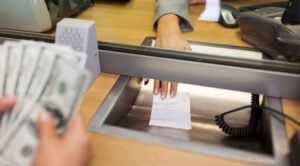Personal cash flow involves understanding where your money is coming from and how you are spending your finances. If you want to keep some good money in the bank for future use or want to clear some debts, improving your cash flow can be the best solution.
Your net cash flow is obtained by taking the incomes less the expenses. The higher your net cash flow becomes, the more flexible you become in achieving your financial goals. This article will highlight 5 hacks to improve personal cash flow.
What Are 5 Hacks to Improve Personal Cash flow?
Increase your income
When you want to improve your cash flow, the main aspect is to work on your income rather than expenses. Check your pay stub to ensure that you are not having a lot of unnecessary deductions. Are you paying for insurance that is not important? What about those monthly subscriptions? Any unnecessary spending should be terminated until you are financially stable.
You can also improve your income by increasing your working hours, starting a side hustle, or going for odd jobs. This helps you generate extra money away from your mainstream income. In the end, you will have improved your cash flow.
Reduce your expenditure
Even if you are earning a lot of money, if your expenditure is too high, you will have very low net cash flow.
The best way to work on reducing your overall expenses is through Behavioural Cash Flow Planning principles. Separate your expenses into these two buckets; Committed Expenses and Spendable Expenses.
The Committed expenses are those expenses that you have low risk of overspending, low frequency, and have no control over.
This would include things such as your mortgage, rent, car payment, etc. Set up a separate bank account and call it your “Committed Cash Flow” for these expenses.
The Spendable expenses include things such as groceries, entertainment, subscriptions, etc. These expenses are high frequency and high risk of overspending.
They are also expenses that you have the most control over. These expenses should be paid from a “Spendable Cash Flow” account. You will also need to decide which expenses from this bucket you can eliminate if they are not needed.
If you don’t have a cash flow plan, it’s time to consider having one done.
Settle your debts
Debts will consume any money that enters your bank account. You probably have credit card bills, mortgages, or auto loans that are eating up your income.
Settling off your debts will be the better option to improve your cash flow. You can choose to prioritize loans that are accruing a lot of interest or those with a short period of settlement.
When all your debts are paid off, you can channel that cash flow to build your emergency fund or into investments.
Debt refinancing
If you cannot pay off your debt more rapidly, refinancing your debt is an alternative. You can refinance most loans, such as student loans, auto loans, and mortgages.
You can consolidate high-interest credit card debt with a private loan, which normally has a cheaper rate.
If you start paying loans with cheaper rates, you will save cash that you were spending on expensive interest rates.
Reduce recurring cost
Some expenses come up infrequently, but are reoccurring, and require your financial attention. Consider placing a little cash into a different savings account to avoid becoming overwhelmed when these expenses show up.
Conclusion
Working on your cash flow is the best thing to attain financial freedom. To improve your cash flow, work on your income, cut expenses, pay debts, refinance debts, and factor infrequent recurring expenses.












